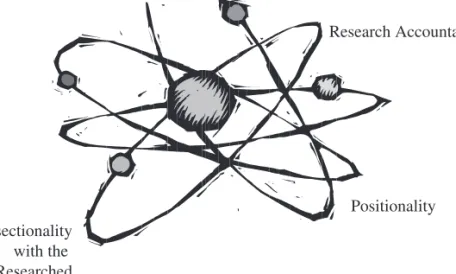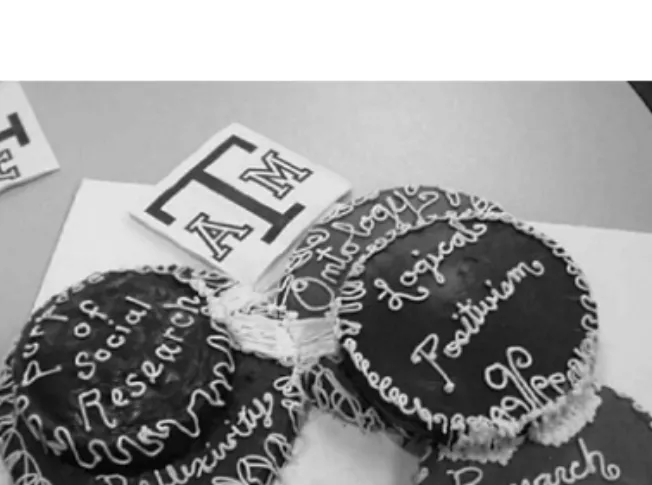The Advances in Tourism Research series publishes monographs and edited volumes that include state-of-the-art research findings, written and edited by leading scholars working in the broader field of tourism studies. For other titles in the series visit: www.elsevier.com/locate/series/aitr Related Elsevier journals — sample copies available on request Annals of Tourism Research.
List of Tables
Contributors
Nigel Morgan is Professor of Tourism Studies at the Welsh Center for Tourism Research at the Cardiff School of Management at the University of Wales Institute, Cardiff. Annette Pritchard is a lecturer in tourism studies and director of the Welsh Center for Tourism Research at the Cardiff School of Management at the University of Wales Institute, Cardiff.
Acknowledgements
The volume at hand distinguishes itself from many previous academic discussions, launched for the field of tourism and hospitality studies, by its spirit - and stamina - of a self-reflective and engaged freedom fighter. This makes it difficult to promote and maintain a sustained, focused conversation between academic and applied research - no matter how much the travel world would benefit from such a connection.
Editors’ Introduction: Promoting an Academy of Hope in Tourism Enquiry
The Story of the Book, or about Poetry and the Political
However, our understanding of the critical study of tourism is that it is more than just a way of knowing, an ontology, it is a way of being, a commitment to tourism research that is pro-social justice and equality and anti-oppression: it is an academy of hope. Advocating critical studies, however, is not about replacing one dominant school with another, merely replacing one rigid 'ism' with another – in other words it is not about 'either/or' thinking. .
About the Book, or Moments in an On-Going Conversation
The second half of the book focuses on issues of research practice in a series of essays that convincingly translate some of these conceptual formations into specific methodologies, research techniques, methods of interpretation, and writing strategies. The collection then concludes with several strong examples of the personal, situational, and above all emotional nature of tourism research.
Using the Book, or Taking on Critical Research
Chaim Noy and Ria Dunkley reveal the challenging and sometimes painful nature of the research process and make a compelling case for passionate scholarship before the final chapter presents a series of brief autobiographical reflections on their individual academic trajectories Stephen Doorn, Stephanie Hom Cary, Graham Brown, Jo-Anne Lester, Kathe Browne, Tomas Pernecky, Susana Curtin, Martine Abramovici and Nigel Morgan.
Proceedings of the Omega Women and Power Institute 4th Annual Conference and 5th Day, New York, September 9–11. Proceedings of the Omega Women and Power Institute and 4th Annual V-Day Conference, New York, September 10–13.
THE CRITICAL SCHOOL OF
TOURISM STUDIES: CRAFTING THE EPISTEMOLOGICAL GROUNDS
De-centring Tourism’s Intellectual Universe, or Traversing the Dialogue Between Change
Introduction
Indeed, the field has grown so much in the last 20 years that there are now more than 40 professors of tourism management and tourism studies in the UK alone (Tribe, 2003); most of the world's leading academic publishers publish tourism book series, there has been a dramatic growth in the number and variety of tourism journals. In the UK, for example, the impact of such funding mechanisms on the 'shape' of tourism inquiry is particularly acute, with tourism scholarship largely subject to units of research assessment in studies related to sport or entrepreneurship and management – heavily dominated by positivist approaches.
Deconstructing the Academy
As with the other recent articles describing the patterns of tourism scholarship, Weibing Zhao and Brent Ritchie do not problematize the gender imbalance and thus there is no discussion of the consequences of the patriarchal structures they expose. Thus, according to their ranking of the top 54 tourism scholars, only 3 non-English speaking nations have trained one leading scholar.
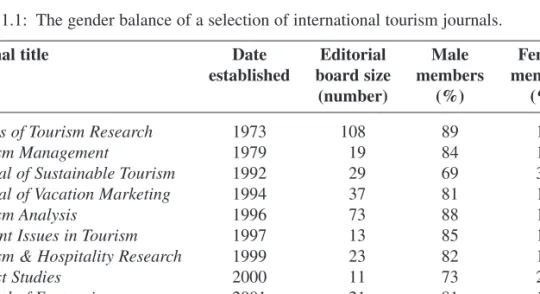
Discourses of Knowledge Production
The time has come to explore how this male, Anglo-Saxon, business-oriented dominance of the field has shaped its architecture of knowledge. But to what extent have members of the wider academy reflexively engaged in such critiques?
A New Approach?
We must all take on some of the responsibility for creating spaces where alternative voices can be heard, especially by encouraging emerging researchers to publish and showcase their work. What we challenge the academic gatekeepers is to listen more closely to the voices of second-generation scientists and those of currently marginalized and under-represented groups (including women, black and ethnic minorities, and Indigenous scientists) in the tourism industry. management/study community.
Conclusion, or a Pause in the Conversation
It is no wonder that the rapid transformations that shook many disciplines in the 1980s forced a rethinking of the intellectual universe. Fifty years ago, social, gender and economic inequalities were “just the way things are.”
Critical Tourism: Rules and Resistance
It does not necessarily trust the accounts of the researched to give a true reading of the world. It is wary of the possibility of their false consciousness (or at least, not fully engaged).
Criticality Contained
But beyond that it is possible to see what Aronowitz and Giroux (1991) refer to as the tyranny of the disciplines. In the case of tourism studies, it is likely that the development of criticism originated with the unapproachable researchers who found their means of livelihood in traditions and disciplines outside the field of tourism.
Conclusion
A reconceptualized critical theory questions the assumption that societies such as the United States, Canada, Australia, New Zealand and the nations in the European Union, for example, are unproblematically democratic and free. Patriarchal paradigms and the politics of pedagogy: A framework for a feminist analysis of leisure and tourism studies.
Structural Entanglements and the Strategy of Audiencing as a Reflexive Technique
The critical turn requires us, as students, academic researchers, teachers, and communicators, to think about the impacts of our research on those we study, the communities in which we work and live, and the diverse audiences with which we engage. In these ways, we are reflecting on the process of reflexivity. 2004, p. 360) refer to this process as the “reflexive double arc,” in which authors come together to “tell and write stories about reflexivity.
Getting ‘Entangled’ in the Project of Reflexivity
Confusing the intersectional with the researched is perhaps the most intersectional force involved in being reflexive. And how our engagements with the so-called "researched" as academics help us to rethink our assumptions brought to research.
Coping with the Entanglements of Reflexive Research
Stacy Holman Jones (2005) describes the drama of representation, legitimation, and practice as part of an ongoing dialogue between self and world that hinges on questions of ontology, epistemology, method, and practice. Such questions include: what is the nature of knowing, what is the relationship between knower and known, how do we share what we know and with what effect.
Proposing the Strategy of Audiencing
In their contribution to the 2000 edition of the Handbook of Qualitative Research, Carolyn Ellis and Arthur Bochner (2000) adopted the most playful form of listening. This initial conversation contains the frustrations Art faces with content, approach, and time management, and especially the limitations imposed by the manual chapter genre as a form of writing.
How Do We ‘Audience’? Stories of Audiencing in Action
I will give you an example of my research and published work (with my wonderful collaborative colleague Stephen Doorne) in the area of backpackers and tourism entrepreneurship. I think one of the best examples of listening is thinking about how I communicate in different ways when I speak to students, fellow academics or people in the wider community.
Resisting Rationalisation in the Natural and Academic Life-World: Critical Tourism
Research or Hermeneutic Charity?
For analytic philosophers who study ontology, the focus is typically on the task of building an inventory of the things that exist in the universe. The basic argument we started with crystallized into a much stronger thesis as a new and sobering realization emerged, that (1) beyond the colonization of the natural world, and (2) the rationalization of the mundane world of human interests, was (3 ) the colonization of the social research world of tourism studies.
Rationalisations in the Everyday Research(ed) World
Such troubling research strategies compete with the uncertainty-reducing comfort and historical privileging of the (social) scientific method in traditional tourism research curricula. Since this might not make real sense without theoretical and historical contextualization, a smarter alternative would be to outline the concerns of critical theorists such as those of the Frankfurt School and provide illustrative examples, as is done below.
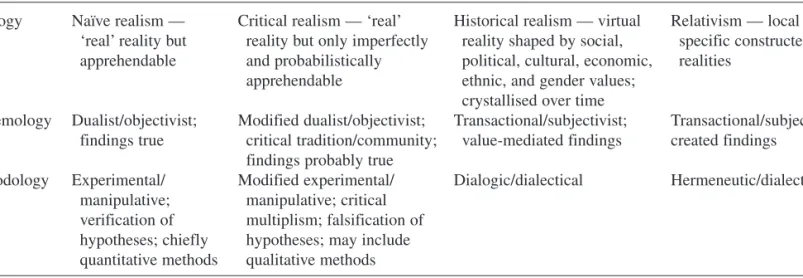
The Frankfurt School
Each of these two forms of knowledge is supported by a 'knowing constitutive interest' and a form of scientific inquiry: 'empirical-analytical science' in the field of the systems world and 'historical-hermeneutical science' in the field of life. - world. The rationalization of the living environment arises when the interests and well-being of the local residents living in and around the park are excluded or negated by technical interests.
The Myth of Yellowstone National Park
Transatlantic travel and the expansion of the railroads were integrally linked to the development of national parks in the United States and the growth of tourism to these natural landscapes. The birth of the tourist guidebook in the 19th century played an important role in this romanticization of Yellowstone to local and European visitors.
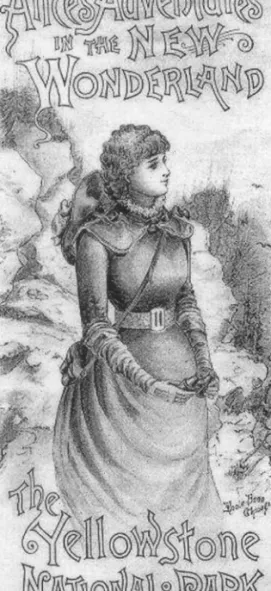
The Critical Reflexive Researcher
The tourist sees only a few selected elements of a nation's public culture in a compressed itinerary, enough to form a favorable impression of the culture, nation, or identity of the society or area visited. As discussed in the last section below, these meanings depend in part on the praxis-oriented role of the tourism researcher in the destination domain.
The Researcher’s Own Assumptions
In the case of Yellowstone National Park, understanding the social facts and the political context provides insight into park formation, as does understanding the role of the tourist industry in the social construction of nature and the park as a destination area. Tables 4.1 and 4.2 show that assumptions about human nature and about the external world play an important role in the research paradigm used, giving preference to 'objective' technical knowledge and considering the practical knowledge of local people in the study area.
Praxis, Resistance and Hermeneutic Charity
Forms of 'ecological imperialism' arise when nature-based forms of tourism development and promotion 'fail to appreciate the role of social values in sustainable tourism development and biodiversity conservation' (Hall, 1994, p. 141).
Epilogue
A good start may lie in the local and the particular, in questioning our intellectual traditions, our research methods and relationships with the natural and social communities that constitute the 'subject' of tourism studies. Social Change and Conservation: Environmental Policy and the Impacts of National Parks and Protected Areas.
Marking Difference or Making a Difference
Constructing Places, Policies and Knowledge of Inclusion, Exclusion and Social Justice in
In a world where difference is increasingly characterized by patterns of consumption rather than modes of production, leisure, sport and tourism have become key markers of economic, social and cultural capital formation that shape identities of class, nation, ethnicity, religion, race, gender, disability, age and all the myriad intersections between these identities. The talk then focuses on three specific research case studies chosen to provide illustrative examples of the effectiveness of 'the socio-cultural nexus' as a conceptual framework for understanding inclusion, exclusion and social justice in leisure, sport and tourism.
Policy Context
However, the adopted approach has tended to equate exclusion with economic poverty, treating exclusion as a relational rather than a distributional concept and not sufficiently recognizing that social exclusion can be experienced materially as economic poverty and culturally as prejudice, discrimination, fear and/or hatred of another (Commins, 1993; Knight & Brent, 1998; Room, 1995). My work is concerned with the interplay between these different forms of exclusion, the ways in which they materially and culturally intersect and interact to shape exclusionary practices and discourses, and how we can move away from identifying negative ways in which difference is marked by positive ones. ways in which a difference can be made.
Theoretical Context
The new social and cultural geographies of the 1990s began to rework earlier geographical perspectives with the sociological analyzes of Bourdieu (1984), de Certeau (1984), Foucault (1977) and others providing insight into the role of cultural capital, productive consumption . and the monitoring power, respectively At the turn of the 21st century, however, a number of authors urged caution in the wholesale adoption of the cultural rather than the social or the poststructural over the material.
Auto-Ethnography
In social geography Liz Bondi had made a similar plea in 1992 when she called for not prioritizing the cultural over the social or 'the emancipation of the symbolic and sociological', and this was echoed almost a decade later by Gill Valentine, in 2001, who asked 'What happened to the social?' in a paper exploring the impact of 'The "cultural turn" in British human geography'. I will now move forward a decade from 1988 and introduce the first of the three case studies that serve to illustrate aspects of my research.
Case Study One: Leisure (Young People, Disability and Social Exclusion in Leisure)
First, young disabled people had many of the same leisure priorities as their non-disabled counterparts. But both critical and poststructural theories have begun to question this dual juxtaposition of the medical and the social.
Case Study Two: Sport (Gender and Sport Policy and Management in the UK and Iran)
Everyone has the right to participate freely in the cultural life of the community, to enjoy the arts and to share in scientific progress and its benefits (Article 27: UN Universal Declaration of Human Rights). The social, cultural and spatial context of women's leisure and sport in Iran differs from that in the West, but both activists and academics have attempted to replicate Western models of lobbying, organization formation and specific policy development to improve women's sport.
Case Study Three: Tourism (Intersections of Gender, Sexuality and Ethnicity in Tourism Studies)
In tourism studies, the 'cultural turn' has developed alongside the 'critical turn', rather than developing following the development of theoretical discourses that included critical theory, as was the case in sociology, geography and leisure studies (Aitchison, 2006b) ). Here, the new sub-discipline of critical tourism studies and its central proponents (all of whom are here tonight and collectively known as 'The Academy of Hope': Irena Ateljevic, Nigel Morgan, Annette Pritchard and John Tribe) are central to developing the discourse of identity and inclusion in tourism and thus contribute to a theoretically informed policy.
Gender Analysis in Tourism
Personal and Global Dialectics
Our Stories
My father remained in the same job throughout his working life, only punctuated by war service. I promoted this agenda in the US (Swain, 1995), while Vivian Kinnaird and Derek Hall (1994) worked together in the UK.
Key Issues
In particular, I believe that we should be concerned about gender in tourism research for the basic reason that tourism consists of interactions between women and men of different genders. We acknowledged some of these in joint articles published in Tourism Management (Kinnaird & Hall, 1996) and Tourism Recreation Research (Kinnaird & Hall, 2000) and in a special issue of TRRwith Peggy (MBS) in 2003, which we already mentioned.
Future Directions
There is insight to be gained in tourism studies from Bourdeau's ideas about habitus or embodied conditions that dialectically engage social structure with individual agency, transforming possibilities. For example, I am interested in gender analysis of embodiment, habitus and cosmopolitanism in tourism research.
Interrogating the ‘Critical’ in Critical Approaches to Tourism Research
The Critical Paradigm within the Social Sciences
It is possible to identify four main characteristics of critical theory - it was interdisciplinary, reflective, dialectical and critical. The latter point brings us to the last characteristic of critical theory, that is, that critical theory is critical.
The State of ‘Critical’ Tourism Research
Obviously, it would have been helpful if this chapter had examined the articles in this journal. Positioning an Island Destination in the Peripheral Region of the Baltic States: A Flexible Approach to Market Segmentation.
A Realist Critique of the Situated Voice in Tourism Studies
Most of the published work in tourism is reviewed in the excellent contributions of Westwood, Morgan and Pritchard (2006) and Ateljevic, Harris, Wilson and Collins (2005) to two special issues of Tourism Recreation Research (Volume 30(2) ) and Volume argues that the situated voice better captures the fractured, contradictory and context-rich social world and that epistemology humanizes the research process The origin of the situated voice is in the rejection of positivism as a tenable philosophy in the social sciences, the crisis in Marxian -inspired material realism and critical theory, and the rise of constructivism, hermeneutics and phenomenology.
A Realist Critique
In this scheme we can then locate the situated voices in the empirical realm (as we sense them) and the actual (the events narrated through the voice). The research processes that move us into the 'real' are based on A Realist Critique of the Situated Voice in Tourism Studies 125 .
The Epistemic Fallacy and the Slip to Relativist Ontology
In the second sentence we can perhaps see why the slide into relativism was made, perhaps unintentionally. The representation of ontology over epistemology in critical realism provides us with a strong ontology that supports the realist pursuit of knowing tourism as an object in the intransitive domain.
The Problem with Tourism Theory
What has been Achieved?
These new works also loosened the grip of the tourism business in determining theoretical and research programs. Some of these have shifted the focus from tourism areas to mobility itself, creating some excellent new directions, although leaving the theoretical question of tourism itself unresolved (Sheller, 2004; Dant, 2004; Coles). et al., 2005; Hall, 2005).
Persistent Problems
The daily incorporation of technologies of rejuvenation and the body can be traced in the regimes and repertoires of the tourist. This is clear from a detailed analysis of the creative class, which in Florida is ideal for a life full of intense, high-quality, multidimensional experiences.
Repertoires and Orderings of Tourism
This community of foreign citizens, based on choice (and the ability to terminate it) rather than fate (and social restriction or closure), heralded the possibility of choice rather than responsibility as a principle. There is much work to be done: what about comparative national tourism and the impact of international tourism.
Post-Structural Tourisms
I have tried to trace the specific origins and contingencies of modern tourism in nation-building processes, which at least offer the possibility of examining the detailed nature of agency in a socio-political problem and movement. While the conditions for the emergence of modern tourism were dependent and generally given in the currents of nation-building, it still required people with imagination to dream the dream, to envision something completely new.
The Tourism Ordering?
This framework offers a very useful way to reinterpret modern tourism as a process of 'being connected', but also a way of being in and in the world. In its creation, it created one of the most important networks of connectivity that contributed to (and made possible) globalization.
The Tourism of Fear?
This is the reason for an analysis beyond the "social life of things" towards a more symmetrical application of agency to all objects (human and non-human) in tourism. Instead, “the conservatism of fear thrives on fostering a diminished sense of human potential” (Furedi, 2005, p. 21).
Tourism, Materiality and Space
He or she must follow and clarify ordering processes, which I call 'tourism landscapes' (see Van der Duim, 2005). In these processes, as I will illustrate, spaces become entangled in touristic landscapes through complex translation processes.
Tourismscapes: An Actor-Network Perspective on Tourism
In conclusion, I will summarize some of the consequences of the transfer of actor-network theory to the field of tourism studies. Or alternatively – as already mentioned above – they were treated only as objects of tourist gaze.
The Spaces of Tourismscapes
It is the 'imagined tourist space' (Lengkeek, 2002) like that of the 'untouched' René van der Duim. Paper for the 8th conference of the International Association for the Study of Common Property, Bloomington.
Worldmaking’ and the Transformation of Place and Culture: The Enlargement of
Introduction: Meethan — The Conceptual Catalyst for
Worldmaking’
Second, therefore, it is the purpose of this critique of Tourism in Global Society to run faster and further with Meethan's catalytic ideas about the mercurial role - sorry the mercurial roles - tourism has in the consolidating or emergent relationship of globalization. Finally, I will translate Meethan's insights on the role of tourism vis-à-vis culture and consumption to the emerging idea of world-making.
Tourism as a Distinct and Predictable Phenomenon — The Grand Cliches
A list of some of the grand old conceptual chestnuts of Tourism Studies—that is, some of the common platitudes about the common intrusive delicacies and the common fatal recipes of tourism—is now given in Exhibit 11.2. A SELECTION OF METHAN'S OBSERVATIONS ON THE INCLUDING SIMPLIFICATIONS AND ABOUT TOURISM WITHIN THE GLOBAL SOCIETY 1.
Tourism Studies as a ‘Contained Discipline’
Overall, then, Meethan's purpose is to reformulate the questions asked in Tourism Studies about the relationship between tourism, globalization, people and place. Then we can hopefully and implicitly consider that tourism studies commentators will be able to come to a decent and decisive grasp of the myriad ways in which the field engages in connection, advances, or helps redirect the symbolic economy of the world (M169).
The State of Knowledge about the Social Production of Place, Culture and Communication — Other Selected Lead
Like Gibbins and Reimer (1999), it calls for interrogations that more flexibly but carefully connote the complexity of change in a globalizing world. According to Meethan, a more permanent seasoning of the tourism studies literature with such recent cultural studies thinkers should gradually ensure that researchers in the field develop more responsive, place-specific interpretations; Such a seasoning of tourism studies literature should ensure that field researchers can more easily cultivate visible Appadurai questions (following Appadurai, 1990) about the relationships between tourism and flows of people, capital, images and ideas in globalization/localizing the world (M4).
Commentators on Worldmaking
Although some readers may be conversant with the following basic classifications, the list in Exhibit 11.3 contains (i) political science, (ii) performance studies, (iii) history, (iv) anthropological, (v) other historical, (vi) consumer studies, (vii) museological and (viii) literary-philosophical examination of the diverse creative and constructive agency of tourism: hence many treacherous and non-adventurous 'within' the discipline'. Tourism studies/tourism management researchers will not be familiar with some of the 176 Keith Hollinshead.
